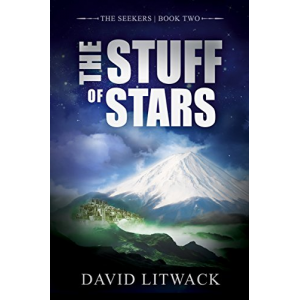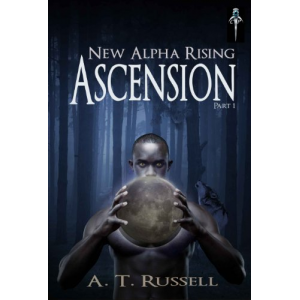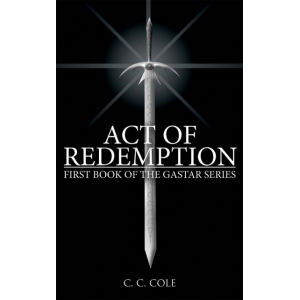- Author
- Book
- Story behind the book
- Media Links
- Reviews

Panteley Bahchevanov
About

The Seekers: The Stuff of Stars (Dystopian Sci-Fi - Book 2)
Description
<p>This second book in <em>The Seekers</em> dystopian series continues the story started in the critically-acclaimed <em>The Children of Darkness</em>, winner of the <strong>Pinnacle Book Achievement Award, Summer 2015 - Best Book in the Category of SCIENCE FICTION</strong>, and winner of the <strong>Awesome Indies Seal of Excellence</strong>....</p><h1><strong><em>The Stuff of Stars</em> by David Litwack</strong></h1><p>Evolved Publishing presents the second book in the new dystopian series <em>The Seekers</em>. [DRM-Free]</p><h2><em style="font-size:13px;line-height:1.6em;">“But what are we without dreams?”</em></h2><p>Against all odds, Orah and Nathaniel have found the keep and revealed the truth about the darkness, initiating what they hoped would be a new age of enlightenment. But the people were more set in their ways than anticipated, and a faction of vicars whispered in their ears, urging a return to traditional ways.</p><p>Desperate to keep their movement alive, Orah and Nathaniel cross the ocean to seek the living descendants of the keepmasters’ kin. Those they find on the distant shore are both more and less advanced than expected.</p><p>The seekers become caught between the two sides, and face the challenge of bringing them together to make a better world. The prize: a chance to bring home miracles and a more promising future for their people. But if they fail this time, they risk not a stoning but losing themselves in the twilight of a never-ending dream.</p><p><strong>Be sure to start with the first book in this series, the multiple award-winning <em>The Children of Darkness</em>. And don't miss David's award-winning speculative saga, <em>The Daughter of the Sea and the Sky</em></strong></p>
Story Behind The Book
Media Links
Reviews
Alternative theology that laments the rise of science and materialism in contemporary culture.<br />Written as a kind of philosophical soliloquy, Bahchevanov (The Parallel World, 2007) wastes no<br />time introducing his paranormal world. For a three-year stretch, his neighbor was Mrs. G.P. Not your<br />grandmother’s medium, Mrs. G.P. had achieved contact with no mere splash of ectoplasm, but<br />extraterrestrial creature Mo. The veracity of Mrs. G.P. was never in question as Mo had an uncanny<br />fluency with the personal details of its contactees—the entity even divulged certain information about<br />a Football World Cup. Mo isn’t necessarily the wellspring of all of Bahchevanov’s ideas, but Mo and<br />Poo (the name for an assortment of transcendental beings) are certainly big players in his cosmic<br />scheme. It’s admittedly intriguing, but the book has an uncomfortable relationship with traditional<br />science and argumentation that, at times, works against the author’s hypothesis. It’s apparent in several passages that Bahchevanov is not a<br />native writer of English or perhaps just a creative one lacking an editor. His voice is powerful and obviously intelligent, so the book isn’t ruined<br />by some unique lexical decisions. The problem is the rhetoric. When he dismisses the traditional historical interpretations of the Easter Island<br />moai, it results in a denigration and co-option of the aesthetic and engineering achievements only the Rapanui artists and engineers rightfully<br />claim. Burgling megalithic monuments from various civilizations only to buttress an encyclopedic pastiche of new-age spiritualism and fringe<br />archaeology is both too banal to be interesting and too insulting to take seriously. The author consistently reminds us that the book is dedicated<br />to “the Creator,” but the creators of the magisterial pre-Colombian civilizations are conveniently reduced to their myths—only scant glances<br />are cast at their authentic archaeological and linguistic mysteries. Everything, of course, was built by aliens or gods. However, these problems<br />of slipshod arguments don’t obscure the well-intentioned vision of a more peaceful, thoughtful existence for all humankind. It’s just the details<br />aren’t that convincing.<br />A bewildering, sometimes brilliant work of alternative history, cosmology and religion.<br />Bahchevanov, Panteley<br />THE CREATION CODE: The<br />Great Illusion of Life Ancient<br />and Contemporary Mysteries<br />BookSurge (196 pp.)<br />$43.99 paperback<br />October 6, 2008<br />ISBN: 978-1439209899<br />Kirkus Discoveries, Nielsen Business Media, 770 Broadway, New York, NY 10003<br />discoveries@kirkusreviews.com






